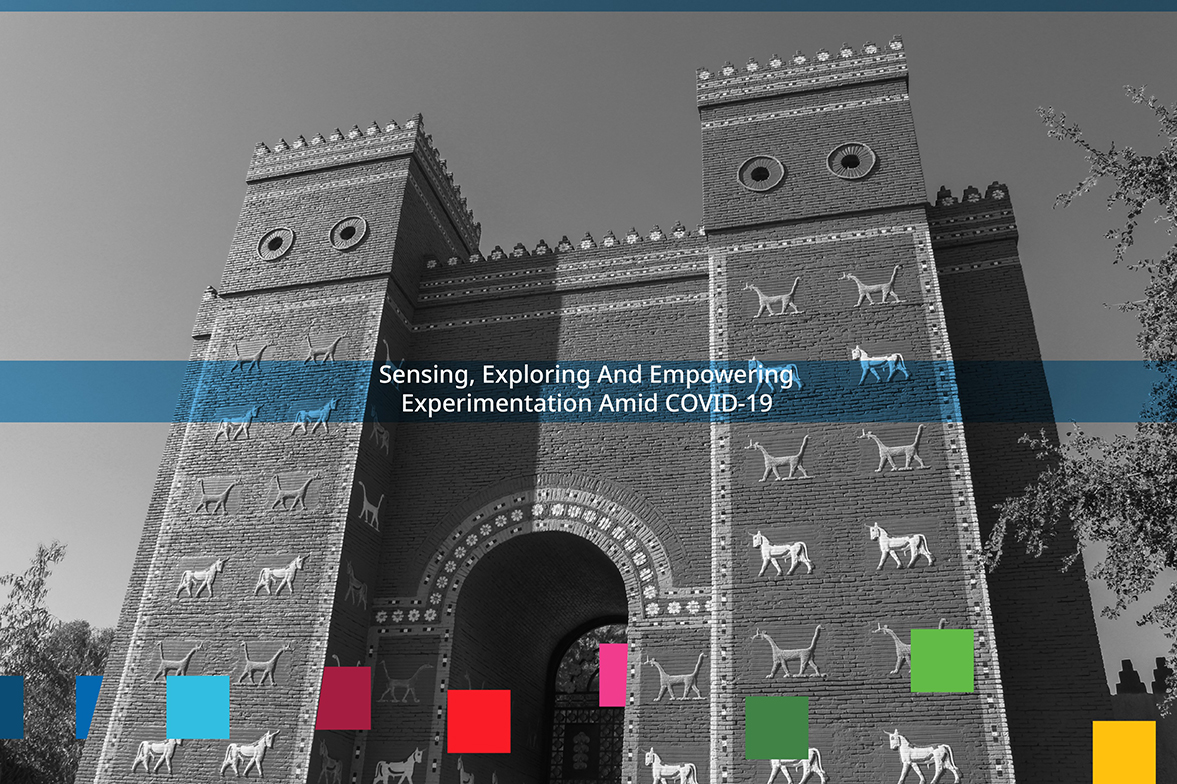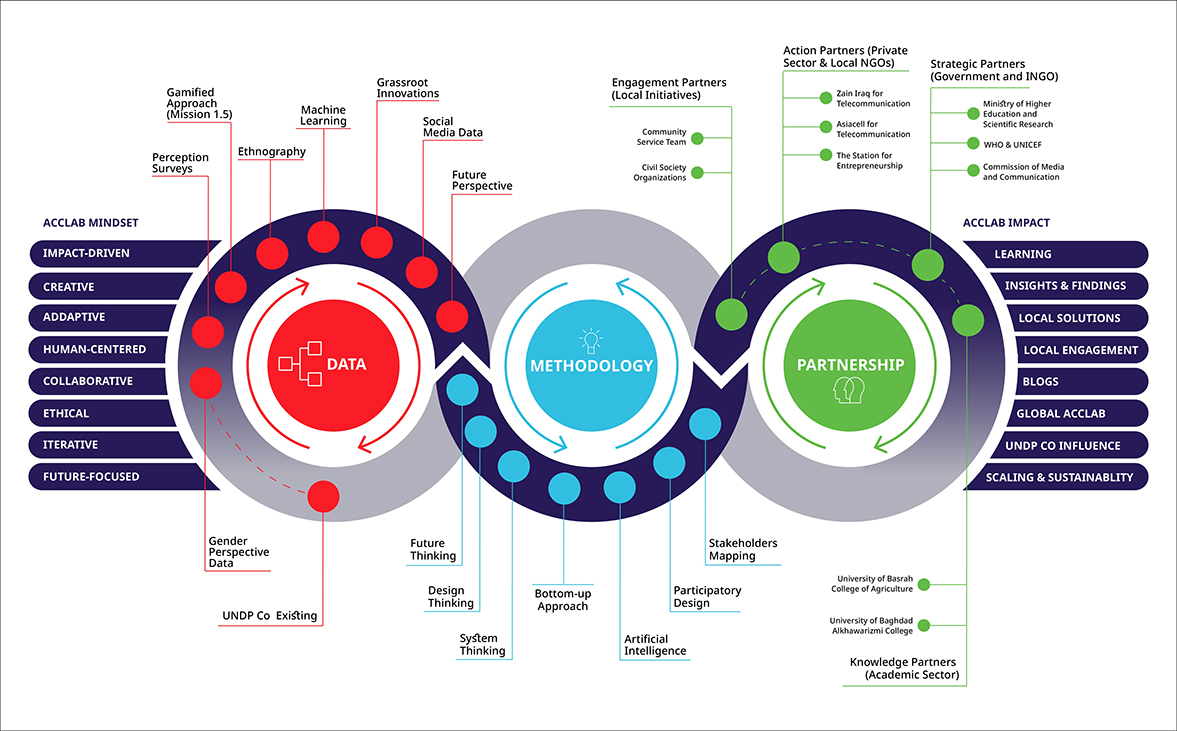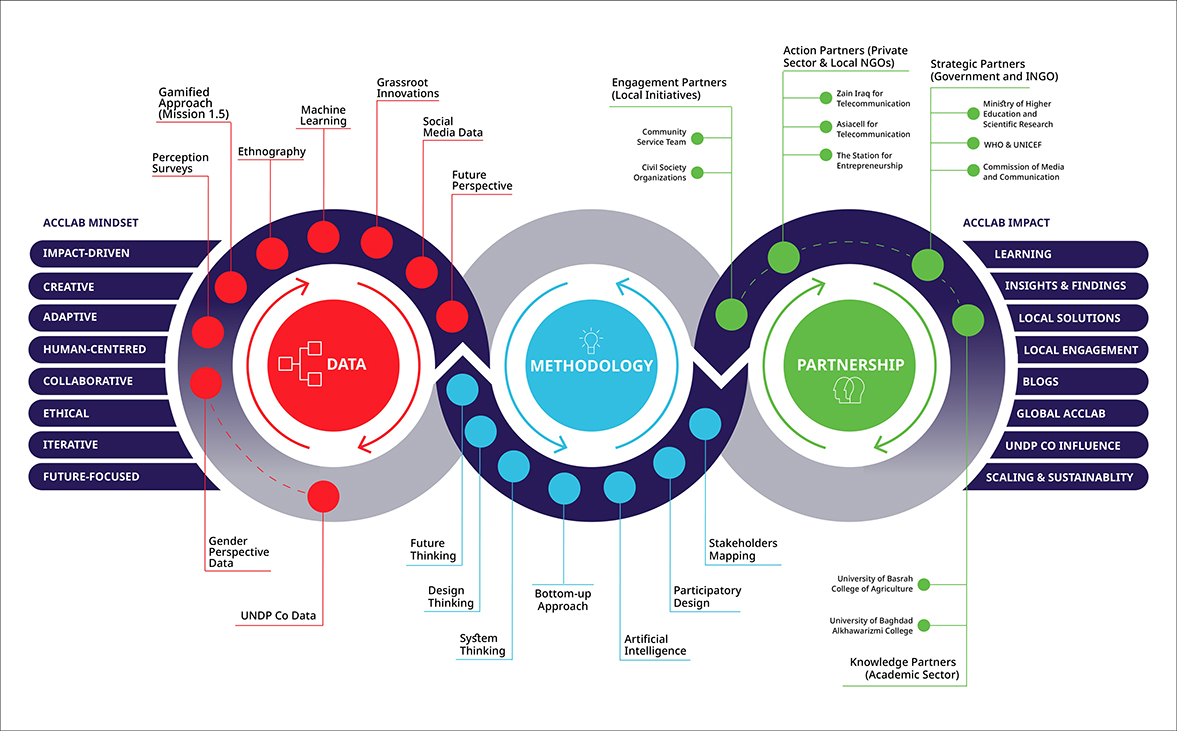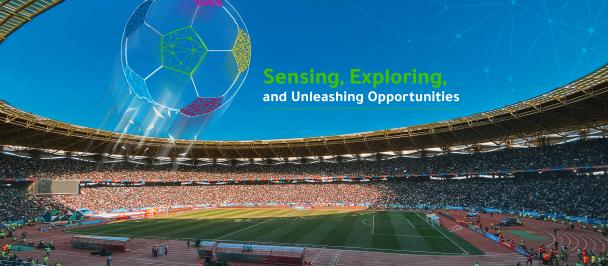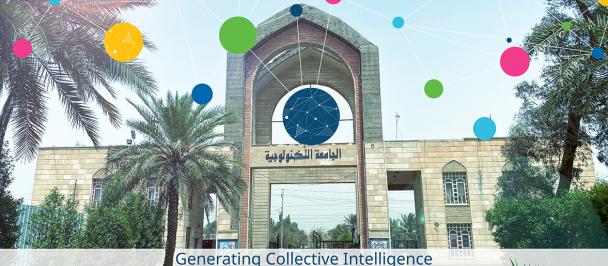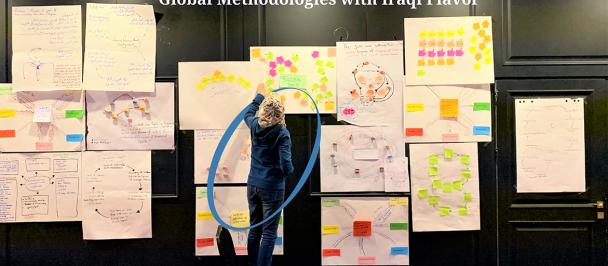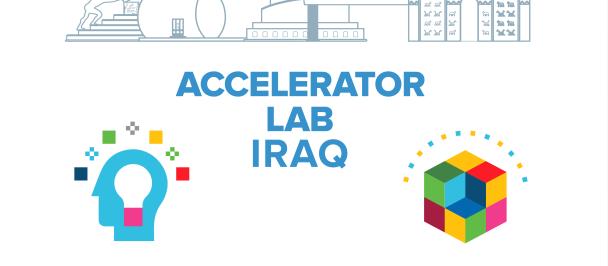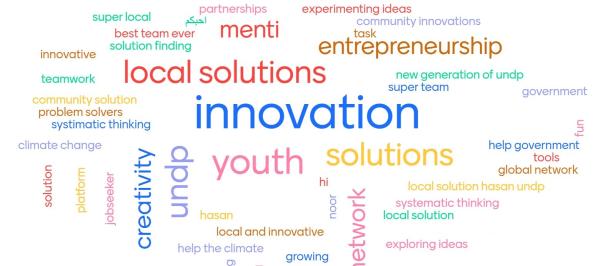Ishtar Gate in Babylon City- Iraq, 2020 by Safa Aubaid
Humans have existed on earth for millions of years, adapting quickly to different circumstances and crises to sustain mankind. The coronavirus pandemic further tested our adaptability to new circumstances. This adaptability, or behavioral level change, can be magnified to affect the way countries function, economies survive, and humanitarian work is done. The challenges of 2020 affected the development sector and added to the complex issues the world was facing before 2020.
The pandemic and its catastrophic implications provided the perfect ground to test “new ways of doing things,” and specifically to test the newly formed UNDP Accelerator Labs. The UNDP-Accelerator Labs were set up in 2019 in 60 countries around the world, growing to92 countries currently, to inject innovation into the “way of work” in development to better tackle 21st century challenges and find innovative grassroot solutions. UNDP Iraq established the Accelerator Lab in its Country Office to be part of the world's largest and fastest learning network, accelerate learning and support local innovations to accelerate development. While the AccLab is supposed to conduct testing, in actuality, the pandemic tested the UNDP-AccLab in Iraq, and it specifically examined its effectiveness to accelerate learning to solve complex problems and support grassroot innovations.
The pandemic allowed for the testing of different parameters of the effectiveness of UNDP-AccLab in Iraq within two complex challenges, which are youth unemployment and climate change within the COVID-19 context. The parameters of testing include the capability of the UNDP-AccLab to innovatively map and use a combination of new methodologies, new sources of data, and new partners in order to accelerate development through producing insights and supporting local solutions. Let us see if the UNDP-AccLab in Iraq was able to tick all parameters and accelerate learning to better tackle youth and unemployment and climate change challenges in the context of the global coronavirus pandemic.
The use of innovation by the UNDP Accelerator Lab Iraq during 2020
➢ The type of data is the starting point
The pandemic showed us the need to evolve in our data collection methods and tested our adaptability to acquire new sources of data, since in-person access to data collection was limited. This led us to seek new domains of data that may not have been collected or studied before. Amid the pandemic the virtual field was the main medium for access to the community. Hence, the UNDP AccLab in Iraq utilized social media data, specifically the power of words and communication patterns, to build a strategy for tapping into insight and mapping local innovations. Gamified methods to collect data were also used to sense and explore Climate Awareness in Iraq through Mission 1.5 Game. On a more innovative frontier, artificial intelligence was used to sense and explore individuals’ mindsets in regard to employment opportunities in Iraq. On a future forwarded approach, the UNDP AccLab in Iraq supported the Gender Responsive Crises Chamber, an initiative started by UNDP’s Country Office in Iraq on collecting trends and signals about youth unemployment and climate change challenges that are present now and may affect our future.
The data acquired required innovative methodologies for analysis, including the need to sense and explore local solutions to tackle complex challenges. Overall, the data collection process proved that Iraqi individuals are aware of the statistical numbers regarding the high unemployment rate and the deteriorating climate situation in Iraq, yet the data did not incentivize action. Additionally, the data collection process demonstrated a lack in the connectivity of the ecosystems, for both the youth unemployment and climate change challenges.
➢ The magic of methodology
Accelerating development to tackle complex challenges doesn’t only require us to test new sources of information, but also to combine the data generated with new methods in order to generate learning with the aim of decreasing the “relevance gap”’ between current approaches and 21st century challenges.
In order to understand the system and why data in the system is not leading to action, the UNDP-AccLab in Iraq used an innovative mix of three methodologies: Systems thinking, Future Thinking and Design Thinking. The three methodologies complete each other. Holistically, systems thinking enabled us to understand the wholeness and the interconnectedness of the system to find and analyze its nodes, through the use of issue-mapping. Then came time to analyze the nodes, issues and solutions, through the use of design thinking, and simultaneously use future thinking to understand the implications of specific problems and solutions in the future. The UNDP-AccLab in Iraq used the above innovative methods and explored the innovation system in Iraq and used design thinking to generate innovative solutions. Then, we took our spaceship from the present into the near future where we identified current signals of change, the trends they are building, and how this will impact our future.
The interplay of the data and methods revealed surprising insights. First, it pointed out the reasons behind the lack of connectivity in the system, which is largely due to lack of communication within the ecosystem, and this leads to asynchrony in the ecosystem intervention. Second, it leads us to recognize that most of the work that is being done to tackle complex challenges is not communicated well to all stakeholders in the ecosystem.
➢ The real change agents
Now it is time to adapt and respond to the information produced through our data collection and innovative methodologies. Previously, we highlighted the need to enhance coordination and collaboration in the ecosystem, while now we focus on “bridging” stakeholders, and encouraging ground for interaction with the aim of establishing a cohesive ecosystem.
With the aim of enhancing local engagement in creating policy-level change, the UNDP-AccLab adopted a bottom-up approach that includes two levels, starting from the local community and driving change upward to policy makers. For the first level, the UNDP AccLab in Iraq performed a stakeholders mapping exercise that led to the formation of an innovation network “Community Service Team,” to align efforts within the ecosystem. Then, it was time to move to the second level and systematically map and identify resources and knowledge within the network, in order to inform building partnerships and policy-level change. Mainly, this involved identifying the active actors in the ecosystem, performing mapping of knowledge and skills across the network, and creating long-term partnership with stakeholders. The strategic building of the partnership approach enabled the UNDP AccLab in Iraq to partner with the Government of Iraq, represented by the Ministry of Higher Education and Scientific Research, to generate learning and change the “way we do things” on an institutional level. Also, UNDP-AccLab cooperated with one of the largest telecommunication companies in Iraq, Asiacell Company, in order to support grassroot innovations during the pandemic. The UNDP-AccLab was able to successfully collaborate with civil society organizations, specifically The Station for Entrepreneurship, and used a participatory future approach to incentivize action within the local community. In order to ensure mission continuity , we built partnerships with academic institutions, such as the University of Basrah-College of Agriculture, in order to incorporate our learnings and mechanisms to support local innovations within Iraqi educational institutions.
The interplay of data, methodology, and bringing new partners and learnings generated from the UNDP-AccLab work in Iraq were inspired by the Global UNDP Accelerator Lab Network and shared with the network to support in accelerating development. The UNDP-AccLab in Iraq spoke out loud about its endeavors on social media outlets and published monthly blogs. Additionally, the AccLab benefitted from the larger learning network through participating in organizing the first ever Explorers Global Summit 2020. We also shared products with UNDP through the publication of the Design Thinking Training Manual. The UNDP-AccLab in Iraq shared 100 local innovations with the world to support the role of local communities innovations in accelerating development.
We know that humans should learn, adapt, and keep learning. This learning comes in the shape of challenges, resolutions, and results. For the UNDP-AccLab in Iraq, the implications of the coronavirus pandemic helped to test our flexibility and innovation. Despite the challenges of 2020, UNDP-AccLab in Iraq has adapted and is ready to generate continued learning opportunities to support livelihoods in 2021.

 Locations
Locations


